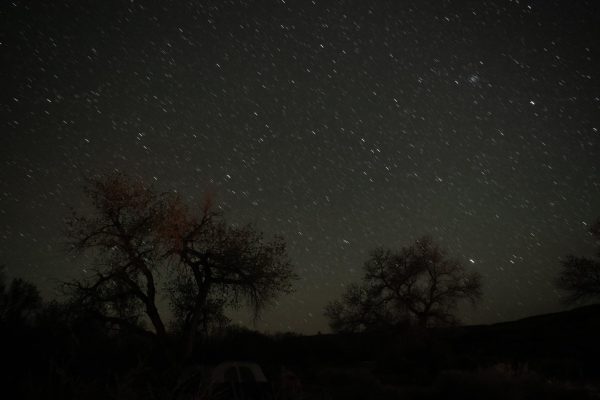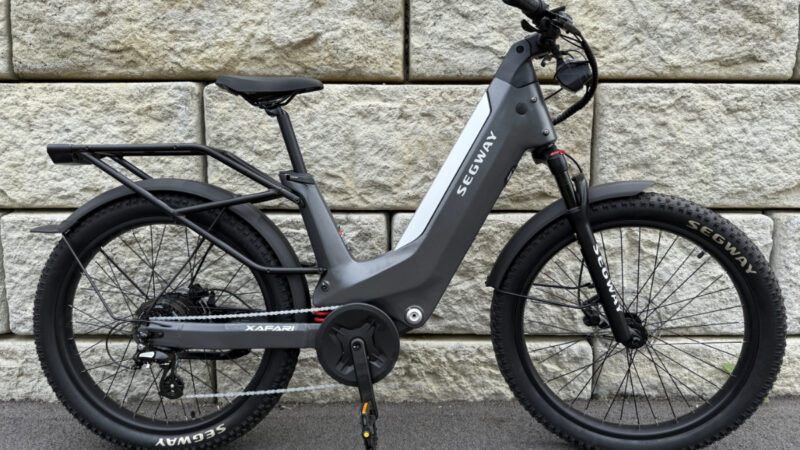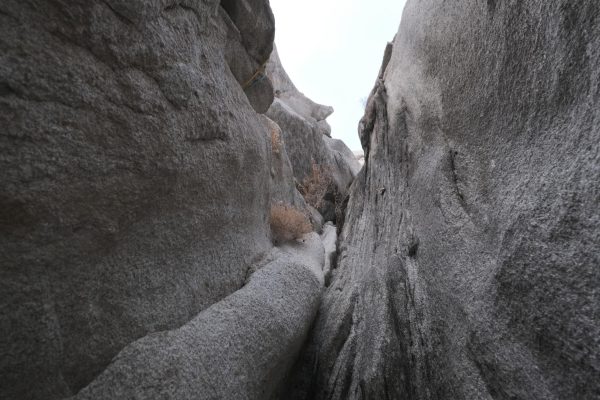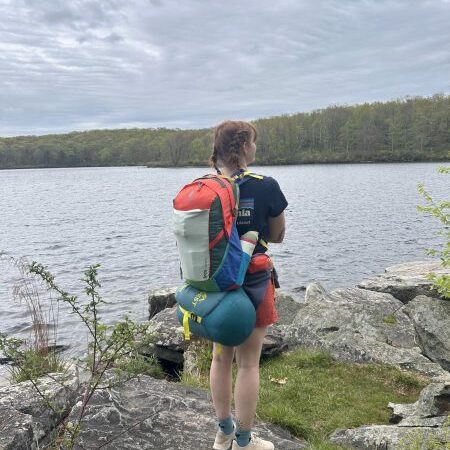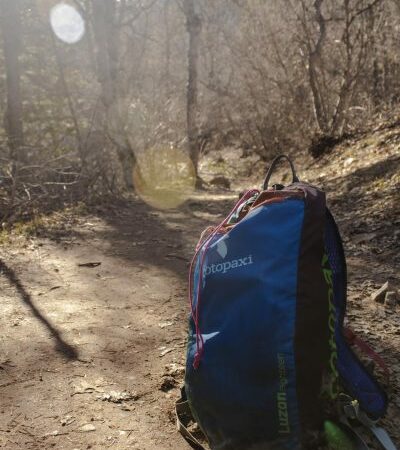Caribbean Coastlines and Coral Death: What Procrastination and Privilege Mean for an Uncertain Climate Future
Darkness settled over Old San Juan, Puerto Rico. A light night-time breeze cut through the heat and humidity of the day and the moon cast a lovely glow over the neighborhood’s famous colonial architecture. The power had just gone out on my street, which might have added to the ambiance and inspired me to go out for a walk or a drink, but instead, I was crouched outside on the third-floor balcony, holding my phone flashlight under my chin while I tried in vain to screw my new and untested bike rack onto the back of my new and untested bicycle.
I had no idea what I was doing. This feeling was familiar. Similar to adventures in my past, when I conceived of this bikepacking trip several months before in Salt Lake City, I had big plans about the shape my careful preparations would take. I’d do a practice ride to Antelope Island to test my gear, I’d have my route carefully mapped out, and my Spanish would be nearly fluent by the end of the year. Instead, in the midst of a chaotic and overwhelming semester, I’d bought my bike a week ago, waited until the night before my flight to pack it in a large box, and was only able to bring it in the end because my roommate was able to track down a pedal wrench at 10 p.m. in the middle of exam week.
I arrived in San Juan with lessons not well-learned. The box sat looming in my hostel dorm room for three days while I tried to finish my essays from the spring semester, went to the beach, and wandered the streets drinking piña coladas. Now, the night before I was supposed to set off on my three-week, 400-mile ride around the coast, I didn’t have much to go on except some bike shorts my roommate lent me, a grocery bag of nuts and candy stuffed into my panniers, and the names of a few campsites I found online with deregistered phone numbers.
I was already behind, making it more difficult to begin. It was the worst kind of procrastination. The kind that made me frustrated with myself for not getting these tasks done yesterday while I was still failing to start them today. A procrastination sitting at the inexplicable juncture of cheerful over-confidence that everything would work out regardless and the anxiety of starting something so new and huge that I just didn’t know what to do first.
I could have booked myself another night at the hostel to make sure I had more time to prepare, but I’m familiar enough with this kind of procrastination and anxiety to know that this wouldn’t help. Time was never the problem. At this point, the most important thing was to get on the road, even if it meant I was wobbly with the unfamiliar weight strapped onto the bike rack I eventually jerry-rigged with elastic. As long as I had enough of the pieces in place to make sure I’d be safe, I could put the rest together on the way.
This is, more or less, what happened. I glided down long coastal roads and had wide Caribbean beaches all to myself most nights. I woke up and rode for a couple of hours each morning before stopping at a local panadería for coffee and eggs, then rode into the afternoon until I stopped for a beer and pulled out my laptop to work on the last of my essays. I worked from a range of places including a lifeguard stand, a broken picnic table surrounded by wild horses, and a local tourism office that I thought was a library, and when I found out it wasn’t, they gave me a desk and let me stay anyway. I went skinny dipping in the dark waves.
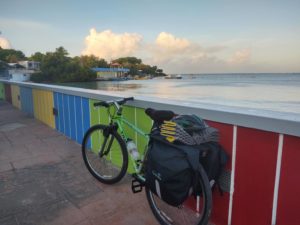
Nights were hard sometimes, hot and sticky with my sleeping bag liner pulled over my face to try to fend off the endless stream of ants and mosquitos pouring in through the holes of my well-loved tent. But I eventually got to sleep each night; the waves broke several meters away, and mosquito bites fade quickly if you don’t itch them. My Spanish was not as fluent as I’d hoped, but I knew enough to communicate my most important needs and learned a lot along the way. I got two flat tires. My cheap repair kit broke immediately the first time, but I managed to find a nearby golf cart mechanic who patched me up. The second time, a local bike shop where they cheered me on in my journey and also made some adjustments to my bike that I’d simply ignored in my uncertainty.
I also went scuba diving. This was always a central part of the plan. I wanted to bike around the coast and stop along the way to check out as many dive sites as I could afford. I felt more comfortable with this part. I’m a professional scuba diver and feel far more at ease underwater than on a bike. Just a few years ago, though, I was a newbie to diving, too. I found it hard to sleep the night before my first twenty or so dives. The depths felt claustrophobic and disorienting. A couple of times after I surfaced and signaled the boat that I was okay, I immediately threw up with relief that I’d simply survived. Fish swam up to nibble at my vomit drifting on the rolling waves.
At this point, I was new to the underside of the ocean as a concept, too. Before I started diving, my best visual reference when conjuring up an image of a coral reef was probably “Finding Nemo.” Combined with a few trips to the aquarium and a general underwater aesthetic from deep sea-themed birthday parties, I had a general picture in mind of the life that lives in the tropical shallows. When I started diving, and eventually became confident enough to focus on something other than not dying, I took the reefs themselves for granted. I was enamored with the sensation of breathing underwater. Against a backdrop of coral, I backflipped, stopped to feel myself rise gently when I took a breath, hung upside down to see the surface above my feet and let my bubbles stream through my fingers. The body underwater is magic unto itself. Then my instructor in a coastal ecology course asked me if coral was a plant, animal, or something else. As much time as I’d spent underwater, I had no idea.
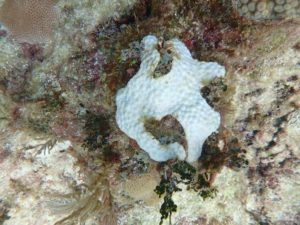
In fact, corals are animals, and another critical point that I’d overlooked in taking their presence for granted is that they are dying at a tremendous pace. In basic summary, corals are very sensitive to changes in ocean temperature. A rise of just a couple of degrees can cause corals to expel their zooxanthellae, the algae that feeds them and gives them their rich color. This causes the corals to “bleach” and turn white. They can sometimes recover, but this is often the beginning of the end for individual corals and entire reefs. Mass bleaching events where ocean heat waves cause significant damage to reefs across the world are becoming more frequent, causing particular damage from 2015 to 2016. As ocean conditions become more stressful due to rising temperatures and other factors, bleaching has occurred alongside other risks like coral disease. A healthy reef does actually look something like “Finding Nemo.” Corals are a colorful neighborhood to many species of fish, sharks, rays, anemones, and invertebrates. An unhealthy reef is still beautiful, especially without a point of comparison, but fish are fewer and further between, and corals are dull in color. Without fish to nibble and keep the lawns trimmed, an unhealthy reef is soon covered in algae, the underwater equivalent of the post-apocalyptic scene in a movie where a once-thriving city lays quiet and abandoned with crumbling architecture and plants beginning to creep into untended buildings.
It might be conventional to say that with education and awareness-raising, we can hold on to hope for the future of our reefs, but I don’t believe in leaning on this kind of deferral tactic to avoid more complicated realities. Even with the minimum rise in ocean temperatures projected by climate scientists if we were to cut emissions tomorrow, data suggests that we would still stand to lose almost all of the world’s coral reefs in the coming decades. e might not be able to see this happen with the same kind of visceral familiarity of a wildfire that rips through the mountains and chokes up the air, but coral reefs are nonetheless home to thousands of species, and they are deeply intertwined with human communities, economies, and patterns of subsistence as well.
We don’t know exactly how reefs will respond to these changes. Death seems imminent based on how corals have responded so far, but other species, just like people, are sometimes adaptable in unexpected ways to dramatically changing conditions. These communities may continue to live on in some new form. To say that we know for sure that they will die seems as misplaced as saying we still have hope to save them.
The climate crisis feels like the apocalyptic version of the goo churning in my gut each time I looked at the empty bike box sitting in my living room, flight just days away, feeling too far behind to begin and thinking that at this point another day probably doesn’t matter too much. The easy conclusion here would be to offer the obvious and the glib: we must get started even in our uncertainty. It’s never too late. But that’s not what I want to say.
What I want to say is that we are racing toward the future and we’re going to do what we’re going to do and avoid what we’re going to avoid, and I hope we do a little better rather than a little worse, but regardless, time was never the problem. We’ll be on the road — we’re already on the road — of climate change regardless, whatever it looks like. Much of this will be far uglier than the challenging parts of a Caribbean bike adventure. Heartbreaking. Devastating. We might be surprised by unexpected detours and forms of resiliency that emerge. Some things might even be beautiful, too. The overwhelming privilege of being able to fly thousands of miles underprepared to an island my country colonized and trusting that everything would work out with tremendous beauty and surmountable challenges is the kind of overwhelming privilege that will probably shape the kinds of resiliency, opportunity, and response to change that are possible in our own communities in an uncertain future. From this, I hope we take uncertainty and grief. I hope we mourn the corals. I hope we continue to seek beauty. And I hope we find urgency in the discomfort of injustice, wherever this wobbly road without answers is taking us.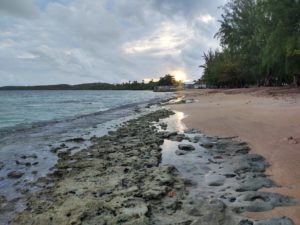
The post Caribbean Coastlines and Coral Death: What Procrastination and Privilege Mean for an Uncertain Climate Future appeared first on Wasatch Magazine.


